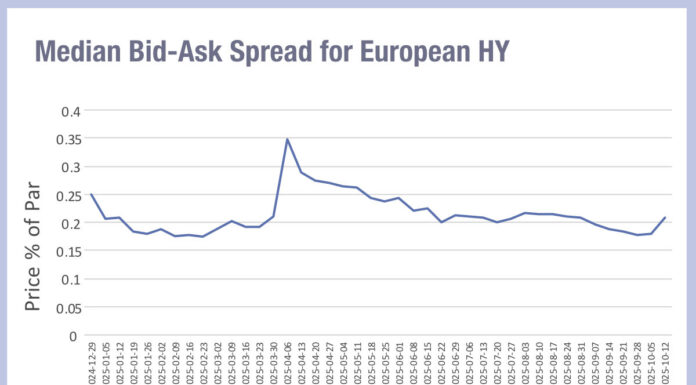Refinitiv, part of the London Stock Exchange Group, and analyst firm Coalition Greenwich, have released a report on the evolution of trading in fixed income as one of a three-part series, which also includes reports on equity trading and FX trading.
It found that in the bond market, a new phase of market automation is coming which is expected to expand the focus from the point of execution to the full, end-to-end workflow:
Some 60% of surveyed fixed-income professionals said they would be spending more time “working to automate processes and workflows,” in the next one to three years, while 37% cited automation / electronic trading a key way to cut costs, followed by vendor consolidation (35%).
There was appetite for continued automation of the fixed-income trading workflow with only 25% of respondents noting a lack of interest from senior management as a roadblock to adopting new technology.
A greater barrier to adoption was limited budget (51%) and limited resource to integrate technologies (50%) which are consistently more challenging in over-the-counter (OTC) markets where proving return on investment can be more challenging.
The report also found that the next wave of electronification is likely to come via less liquid instruments such as emerging market bonds and loans.
Dean Berry, group head of trading and banking solutions, at LSEG, said, “As client needs, market structure evolution, regulatory changes and cost pressures are all driving the market forward, our research seeks to better understand the impact of technological innovation on the capital markets in a post-pandemic world. At the same time, our data-informed insights enable us to better provide technology-driven solutions that help our customers deliver greater value to their clients.”
Kevin McPartland, head of market structure and technology research, Coalition Greenwich, said: “Automation is no longer about only trade execution, but instead improving the full trading lifecycle. As such, market participants are increasingly focused on pre and post trade analytics that require increasingly larger amounts of unique, high quality market data. Those that can connect these dots will see workflow efficiency, and in turn profitability, outpace that of their peers.”
All of the reports in the ‘Evolution of Trading’ series are available here.
©Markets Media Europe 2025













